
Caesarea: A Journey Through Time
Caesarea, nestled along the Mediterranean coast of Israel, is a city steeped in history and brimming with modern charm. Founded by Herod the Great around 25-13 BCE, Caesarea was once a vibrant port city and a hub of Greco-Roman culture. Today, it offers tourists a unique blend of ancient ruins and contemporary attractions. Start your journey at the Caesarea National Park, where you can walk among the remnants of a grand Roman theater, an ancient hippodrome, and the impressive aqueducts. The park also houses the ruins of Herod's palace, offering stunning views of the Mediterranean Sea. Don't miss the underwater archaeological park, ideal for diving enthusiasts eager to explore submerged antiquities. For a taste of modern Caesarea, visit the Caesarea Harbor, which has been transformed into a lively area with shops, cafes, and restaurants. Here, you can enjoy fresh seafood while watching the sun set over the horizon. The nearby Ralli Museums offer a fascinating collection of Latin American and Sephardic Jewish art, adding a cultural twist to your visit. Golf lovers will appreciate the Caesarea Golf Club, the only full-size golf course in Israel, designed by the renowned architect Pete Dye. For a more relaxed day, stroll through the Rothschild Caesarea Foundation's gardens or take a leisurely bike ride along the scenic trails that wind through the city. Whether you're a history buff, a culture enthusiast, or simply looking to relax by the sea, Caesarea offers a diverse array of experiences that cater to all interests.
Local tips in Caesarea
- Visit early in the morning to avoid the midday heat and crowds at Caesarea National Park.
- Pack comfortable walking shoes as the archaeological sites require a fair amount of walking.
- Don’t forget your swimsuit and snorkeling gear for the underwater archaeological park.
- Make reservations in advance for dining at the popular harbor restaurants, especially during weekends.
- Check the schedule for performances at the Roman theater; attending a show here is a unique experience.
Neighbourhoods in Caesarea
Caesarea: A Journey Through Time
Caesarea, nestled along the Mediterranean coast of Israel, is a city steeped in history and brimming with modern charm. Founded by Herod the Great around 25-13 BCE, Caesarea was once a vibrant port city and a hub of Greco-Roman culture. Today, it offers tourists a unique blend of ancient ruins and contemporary attractions. Start your journey at the Caesarea National Park, where you can walk among the remnants of a grand Roman theater, an ancient hippodrome, and the impressive aqueducts. The park also houses the ruins of Herod's palace, offering stunning views of the Mediterranean Sea. Don't miss the underwater archaeological park, ideal for diving enthusiasts eager to explore submerged antiquities. For a taste of modern Caesarea, visit the Caesarea Harbor, which has been transformed into a lively area with shops, cafes, and restaurants. Here, you can enjoy fresh seafood while watching the sun set over the horizon. The nearby Ralli Museums offer a fascinating collection of Latin American and Sephardic Jewish art, adding a cultural twist to your visit. Golf lovers will appreciate the Caesarea Golf Club, the only full-size golf course in Israel, designed by the renowned architect Pete Dye. For a more relaxed day, stroll through the Rothschild Caesarea Foundation's gardens or take a leisurely bike ride along the scenic trails that wind through the city. Whether you're a history buff, a culture enthusiast, or simply looking to relax by the sea, Caesarea offers a diverse array of experiences that cater to all interests.
When is the best time to go to Caesarea?
Iconic landmarks you can’t miss
Caesarea National Park
Discover the rich history and stunning landscapes of Caesarea National Park, a unique blend of ancient ruins and natural beauty along the Mediterranean coast.
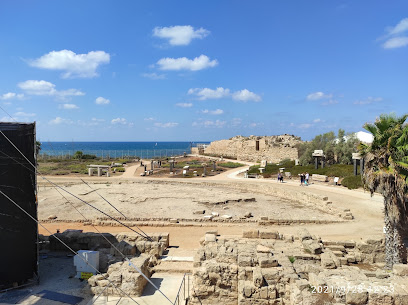
Ralli Museum, Caesarea
Explore the Ralli Museum in Caesarea for a unique blend of Latin American and Spanish art amidst stunning historical scenery.
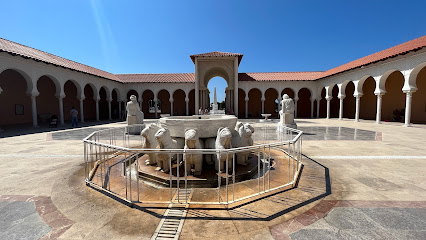
Caesarea Amphitheater
Explore the grandeur of the Caesarea Amphitheater, a stunning Roman architectural marvel along the Mediterranean coast, rich in history and beauty.
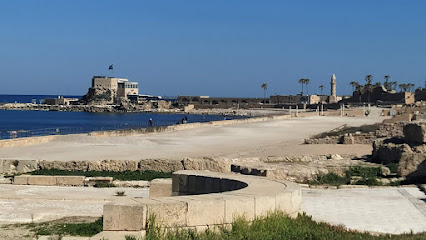
Caesarea Beach
Experience the breathtaking beauty and rich history at Caesarea Beach, where golden sands meet ancient ruins along the stunning Israeli coastline.
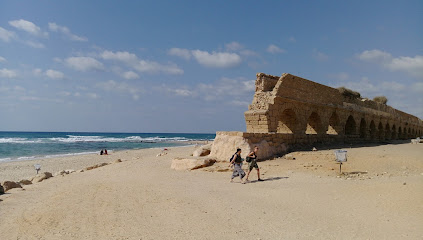
Dan Caesarea Resort - Happiness Is Around
Experience luxury and history at Dan Caesarea Resort, a perfect blend of relaxation, recreation, and ancient charm in beautiful Caesarea.
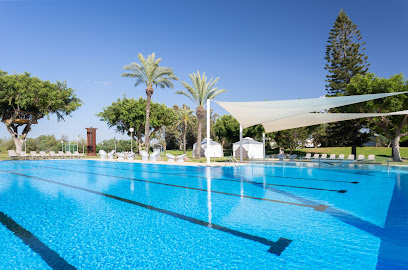
Caesarea Harbor
Explore the ancient ruins and stunning views at Caesarea Harbor, a captivating historical landmark on the Mediterranean coast of Israel.
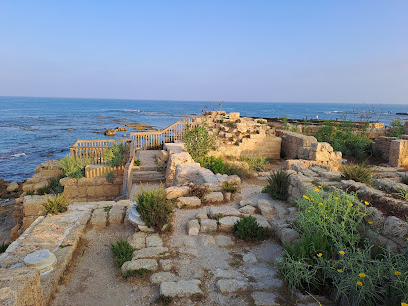
Roman Aqueduct
Explore the breathtaking Roman Aqueduct in Caesarea, a historical landmark that blends ancient engineering with stunning seaside views.
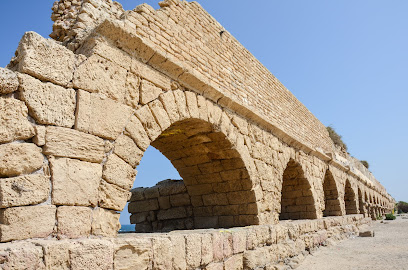
Caesarea National Park parking
Explore the ancient wonders of Caesarea National Park, where history meets breathtaking coastal beauty.
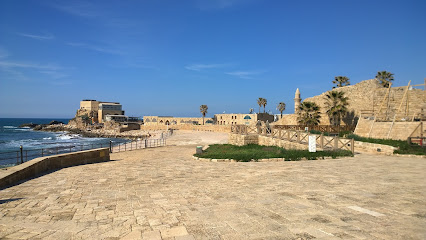
Caesarea Antiquity Museum
Explore the rich history of ancient Caesarea at the Caesarea Antiquity Museum, featuring captivating archaeological finds and breathtaking coastal views.
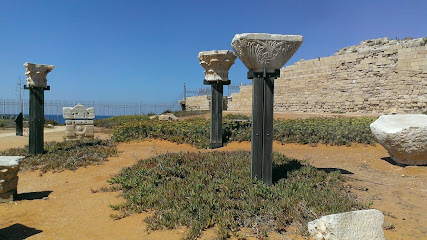
Castle
Discover the rich history and breathtaking beauty of Caesarea Castle, an archaeological site that brings ancient civilizations to life along the stunning Mediterranean coast.
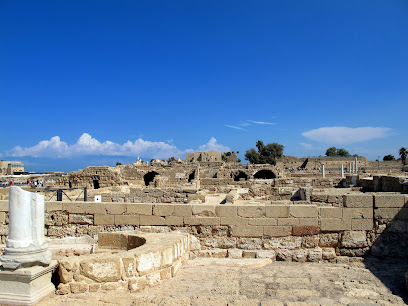
Caesarea Columns
Uncover the ancient Roman heritage at Caesarea Columns, a stunning archaeological site on Israel's breathtaking coastline.
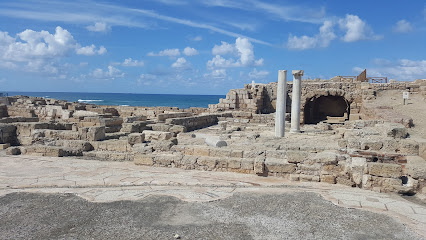
Walking Israel
Discover the enchanting history of Caesarea with Walking Israel, where ancient ruins meet stunning Mediterranean views.
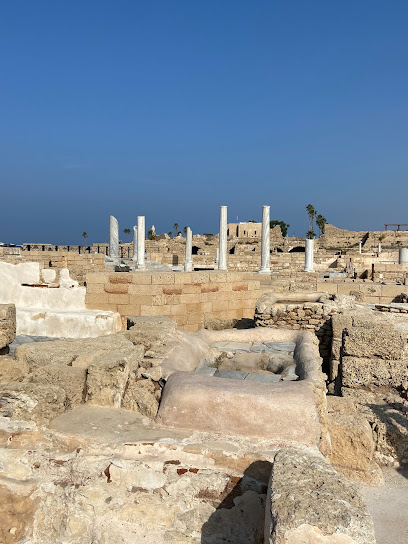
נמל קיסריה העתיק
Explore the captivating historical landmark of Caesarea, where ancient ruins meet stunning Mediterranean vistas, rich in culture and history.
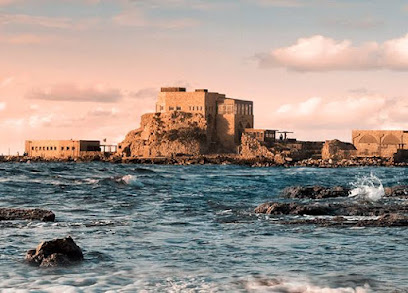
Synagogue
Discover the Synagogue of Caesarea, a historical gem along the Mediterranean that reveals the rich cultural heritage of ancient Jewish life.
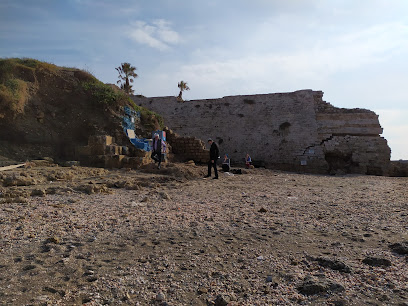
Draydel house
Discover unique handcrafted treasures at Draydel House, a cultural gem in the heart of Caesarea, Israel, perfect for tourists seeking authentic souvenirs.
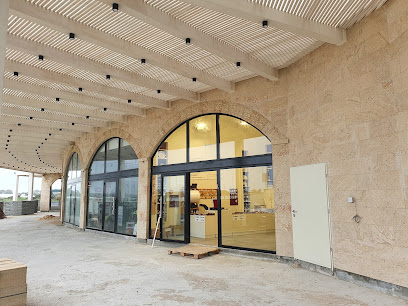
Unmissable attractions to see
Caesarea National Park
Explore the rich history and stunning landscapes of Caesarea National Park, a captivating gem on Israel's Mediterranean coast.
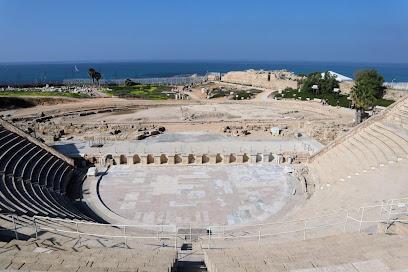
Ramat Hanadiv
Explore the beautiful Ramat Hanadiv, a memorial park in Zikhron Ya'akov, offering scenic hiking and cycling trails amidst rich history and stunning landscapes.
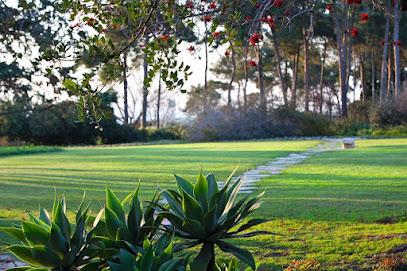
Mount Carmel National Park
Discover the breathtaking landscapes and diverse ecosystems of Mount Carmel National Park in Haifa, Israel, a must-visit for nature lovers and adventure seekers.
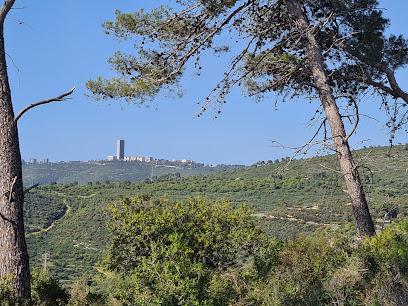
Bet She'arim National Park
Discover the ancient tombs and breathtaking trails of Bet She'arim National Park, a historical gem in Kiryat Tiv'on, perfect for nature lovers and history enthusiasts.
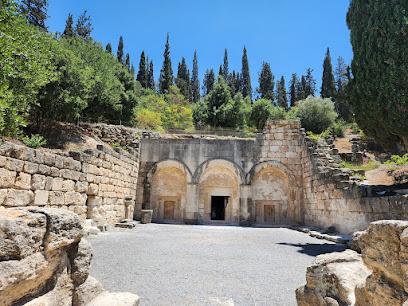
Stella Maris Monastery
Discover the serene beauty and spiritual significance of Stella Maris Monastery, a historic gem on Mount Carmel in Haifa, Israel.
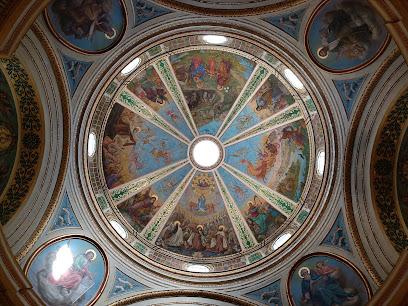
Ha’Em Garden
Explore the serene beauty of Ha’Em Garden in Haifa, a lush oasis perfect for relaxation and stunning views of the Mediterranean coast.
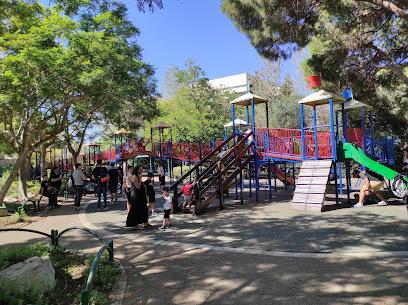
Megiddo National Park
Discover the rich history and stunning landscapes at Megiddo National Park, an archaeological gem in Israel perfect for hiking and exploration.
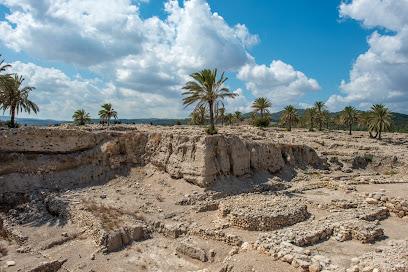
Ralli Museum, Caesarea
Explore Ralli Museum in Caesarea, a treasure trove of Latin American art and contemporary masterpieces set against a stunning Mediterranean backdrop.
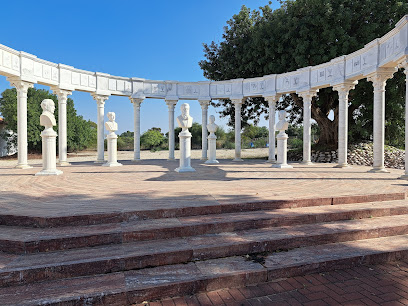
Deir Al-Mukhraqa Carmelite Monastery
Experience the serene beauty and rich spiritual heritage of Deir Al-Mukhraqa Carmelite Monastery in Daliyat al-Karmel, a hidden gem in Israel.
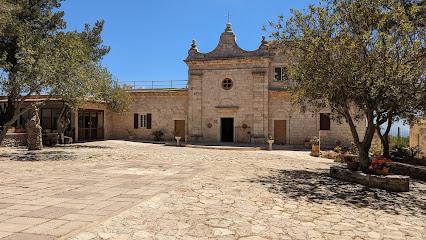
Ein Hod Artist Village
Explore the unique Ein Hod Artist Village, where creativity meets nature in a vibrant community of art and inspiration.
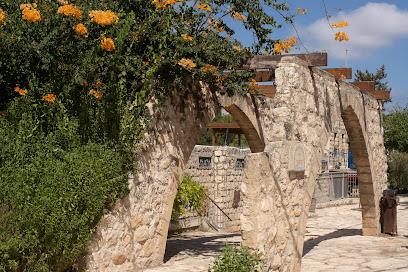
Beit Alfa Synagogue
Explore the Beit Alfa Synagogue: A Historical Landmark with Stunning Mosaics in the Heart of Israel's Natural Beauty.
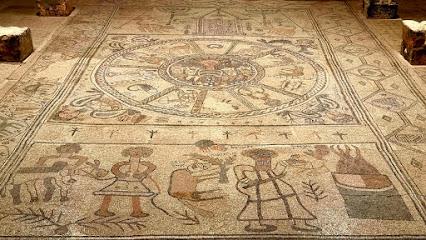
Birds Mosaic
Discover the breathtaking artistry of the Birds Mosaic in Caesarea, a stunning blend of history, culture, and nature.
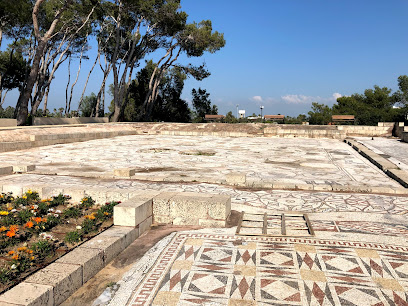
Bahá'í Gardens Haifa (Bahá’í Holy Place)
Explore the breathtaking Bahá'í Gardens in Haifa, a serene UNESCO World Heritage Site blending stunning landscapes and spiritual significance.
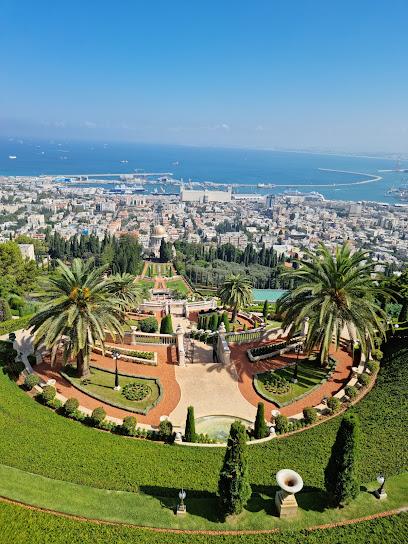
Tulip Winery
Explore the exquisite wines and breathtaking views at Tulip Winery, a must-visit destination for wine lovers in Israel.
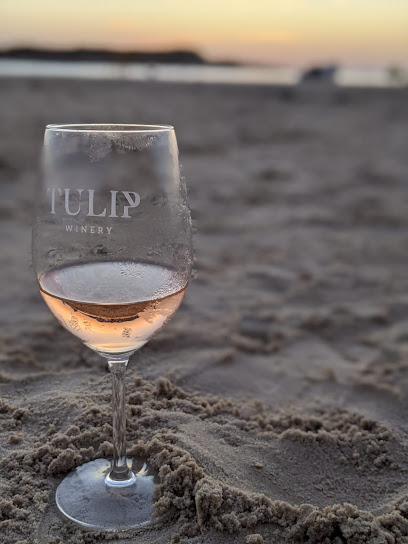
בית חנה סנש
Discover the inspiring story of Hannah Senesh at this poignant museum in Sdot Yam, perfect for history lovers and cultural explorers.
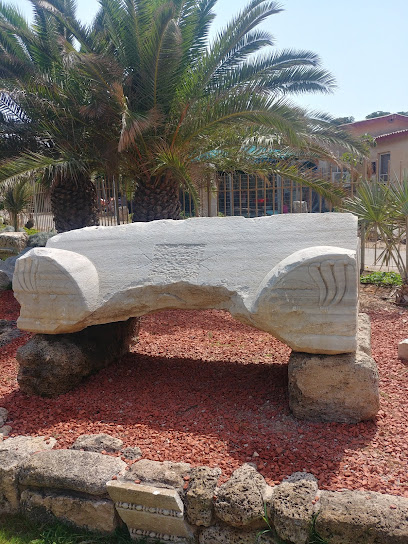
Essential places to dine
ג׳פניקה קיסריה | JAPANIKA CAESAREA
Experience the vibrant flavors of Asia at Japanika Caesarea - where sushi meets tradition in a modern setting.
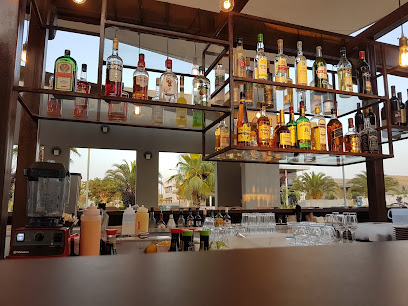
אג'נדה Agenda מסעדה בקיסריה
Experience exquisite Italian and sushi cuisine at Agenda Restaurant in Caesarea – where culinary art meets rich history.
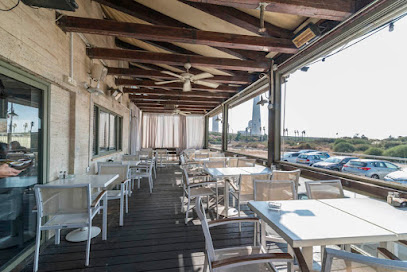
Aresto
Experience authentic Italian cuisine at Aresto in Caesarea - where kosher dining meets breathtaking Mediterranean views.
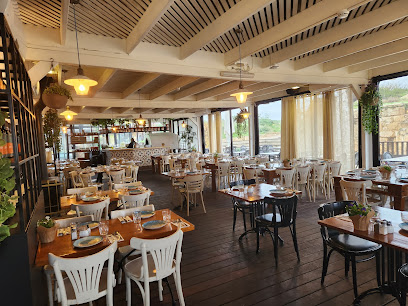
Shabtai Caesarea
Experience the best pizza and vibrant dining atmosphere at Shabtai Caesarea – where flavors meet tradition.
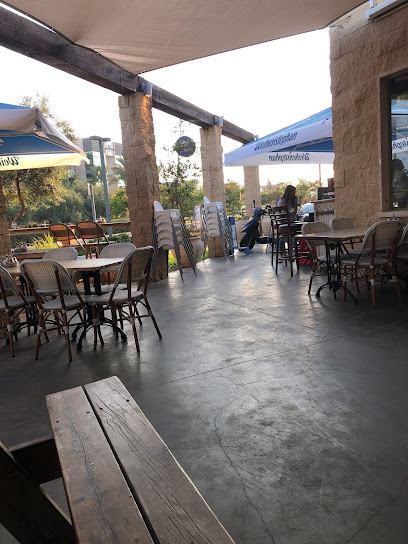
Mariposa
Discover exquisite dining at Mariposa in Caesarea – where gourmet cuisine meets stunning Mediterranean views.
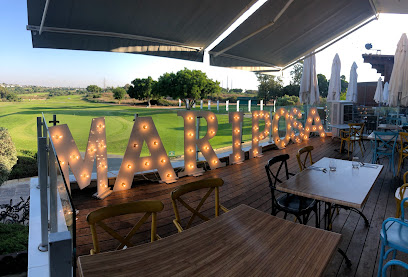
Port Cafe
Discover exquisite kosher dining at Port Cafe in Caesarea - where tradition meets culinary innovation against a backdrop of stunning coastal views.
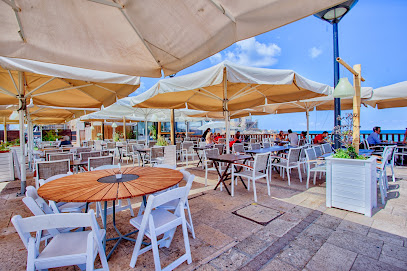
The Crusaders Restaurant
Experience the finest kosher and Israeli cuisine at The Crusaders Restaurant with breathtaking views of Caesarea's ancient port.
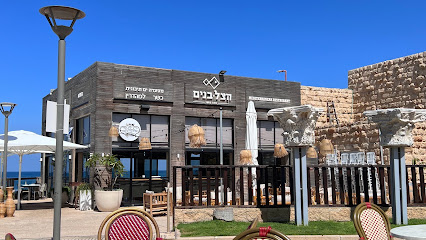
Hellena Restaurant Caesarea Harbor
Experience exquisite dining at Hellena Restaurant in Caesarea Harbor with stunning views and innovative Mediterranean cuisine.
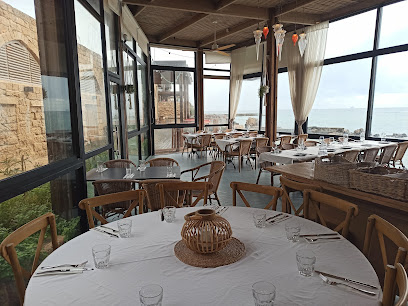
ג'מס קיסריה
Experience authentic Israeli cuisine at Gems Caesarea while enjoying breathtaking views of the Mediterranean Sea.
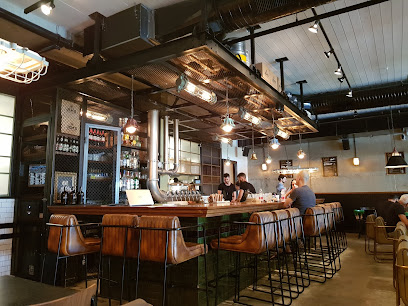
Limani Bistro
Discover exquisite Mediterranean cuisine at Limani Bistro in Caesarea's scenic harbor - where fresh seafood meets stunning views.
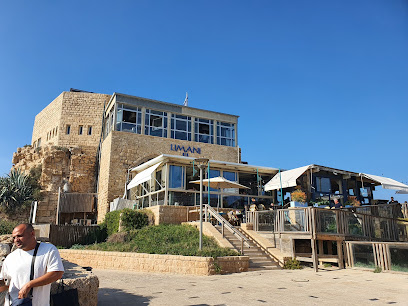
טונה קוקה | Tona Koka- מסעדת שף בקיסריה
Discover Tona Koka in Caesarea: A premier kosher dining experience blending fresh seafood with exquisite flavors.
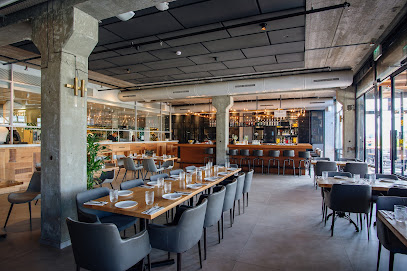
Sagi - Israeli Grill & Kitchen
Savor authentic Israeli flavors at Sagi - your go-to grill & kitchen in Caesarea for delicious meals at affordable prices.
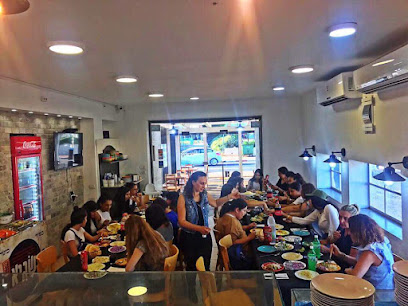
La Vita Bella
Savor delicious pizzas and irresistible ice cream at La Vita Bella in Caesarea's historic port - a perfect blend of flavors and culture.
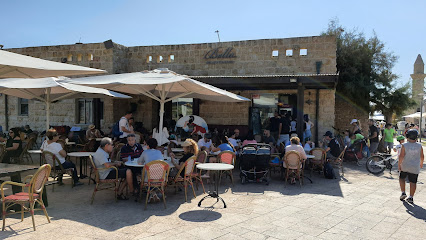
חדר אוכל שדות ים
Experience authentic Israeli cuisine at Chadar Ohel Sdot Yam, where delicious meals meet breathtaking coastal views.
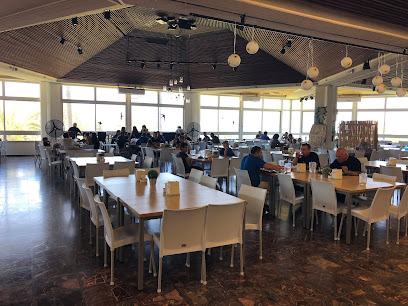
בורגרים קיסריה, כשר בשר חלק
Experience delicious kosher burgers at Burgers in Caesarea, where tradition meets flavor in an inviting atmosphere.
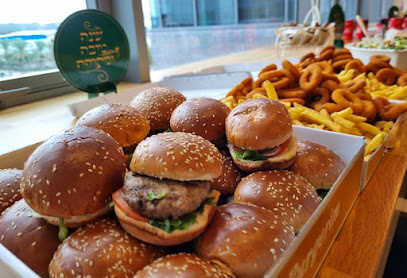
Markets, malls and hidden boutiques
Tiv Taam
Discover the vibrant flavors of Israel at Tiv Taam, your go-to supermarket in Caesarea for fresh produce, gourmet treats, and local delicacies.
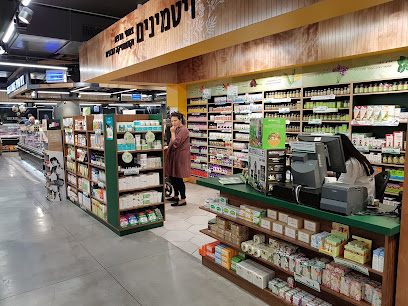
Politzer Caesarea
Explore the vibrant Politzer Supermarket in Caesarea for fresh local produce, international delicacies, and a taste of authentic Israeli culture.
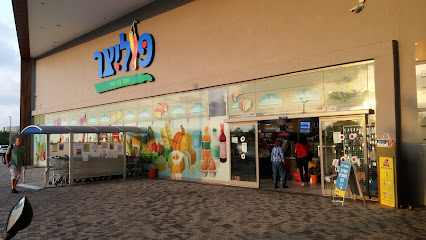
C Center
Discover a shopping paradise at C Center in Caesarea, where modern retail meets rich history in a vibrant atmosphere.
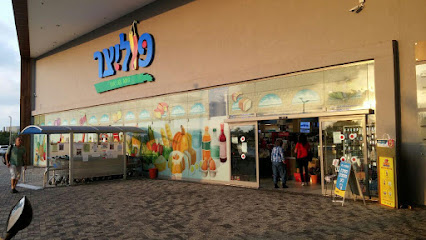
Caesarea Glass זכוכית קיסריה
Explore the art of stained glass at Caesarea Glass, a creative studio in historic Caesarea blending craftsmanship with breathtaking coastal views.
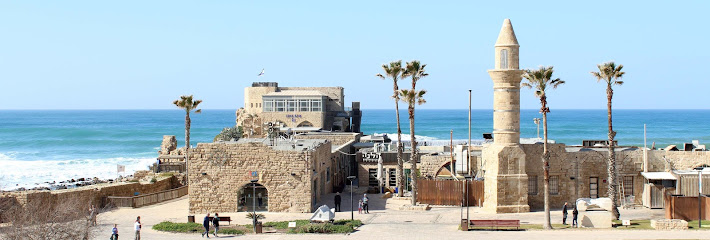
Draydel house
Experience the essence of Israeli culture at Draydel House, where authentic souvenirs and rich history intertwine beautifully.
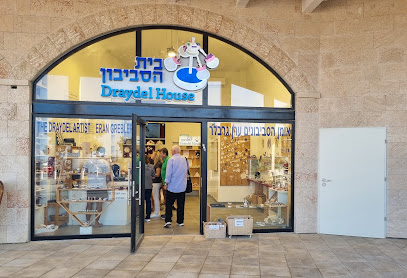
סטודיו מתנות וסדנאות אצל רייצ'ל ווד וורק
Discover handcrafted gifts and engaging workshops at Rachel's Woodwork Gift Studio in Caesarea - a treasure trove of creativity and charm.
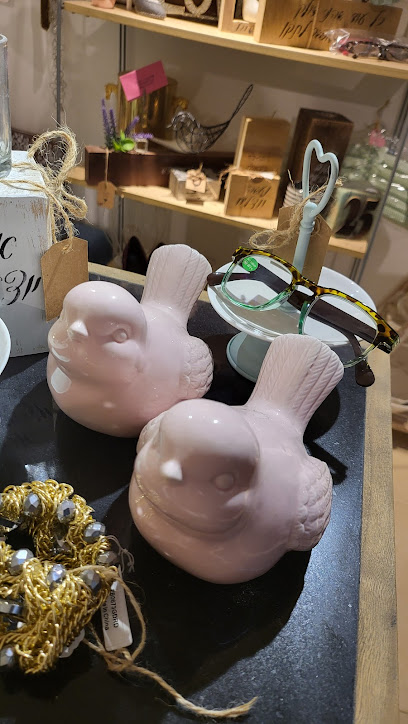
Break
Experience the perfect coffee break in Caesarea, surrounded by ancient history and modern charm at Break coffee shop.
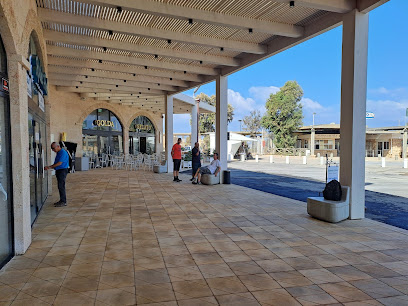
Manchego
Experience the authentic flavors of Israel at Manchego, a charming deli in Sdot Yam offering artisan cheeses and gourmet delights.
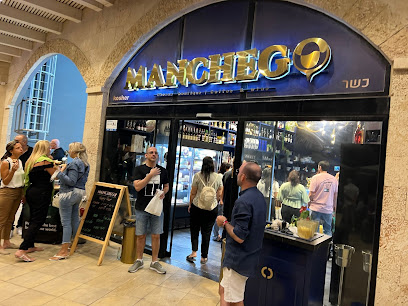
Flash
Discover unique gifts and souvenirs at Flash Gift Shop in Or Akiva, a delightful destination for travelers seeking memorable finds.
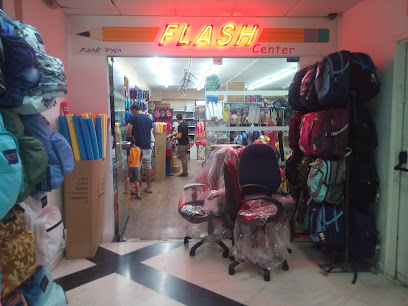
שרון בן עטר
Explore the artistic treasures of Or Akiva at שרון בן עטר, a premier destination for unique figurines, exquisite jewelry, and elegant watches.
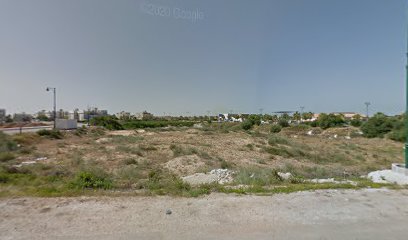
סילביה צימרמן
Experience the beauty of stained glass artistry at סילביה צימרמן in Caesarea, where creativity and tradition blend seamlessly.
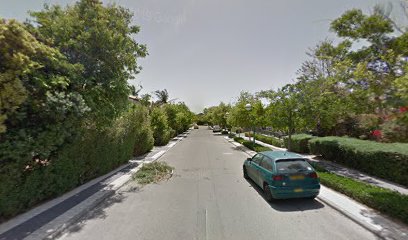
פלאש
Explore the local shopping gem of פלאש in Or Akiva, where unique finds and friendly service await every visitor.
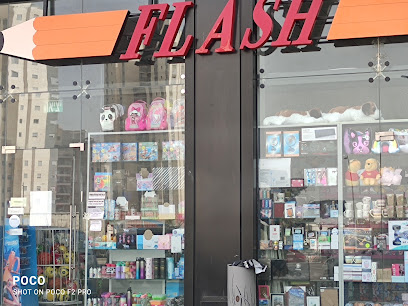
אור התכשיט
Explore the exquisite jewelry collection at אור התכשיט in Caesarea, where craftsmanship meets elegance in every piece.
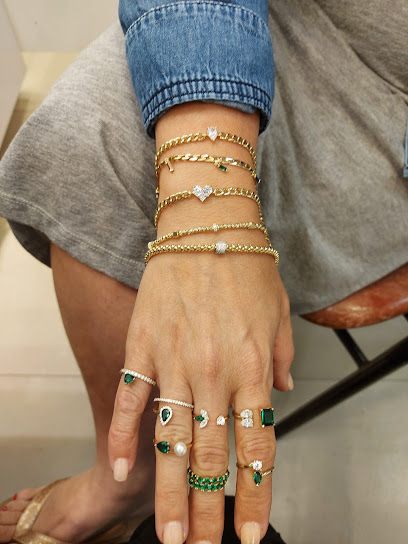
ארטנובה - גלריה לאומנות
Explore contemporary creativity at Art Nova in Caesarea, a vibrant art gallery showcasing local and international talent in a historic setting.
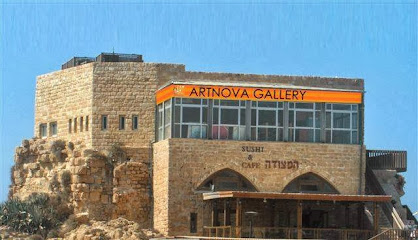
ChakaLaka
Explore ChakaLaka, the ultimate destination for unique costume jewelry in Caesarea, where creativity meets craftsmanship.

Essential bars & hidden hideouts
ג׳פניקה קיסריה | JAPANIKA CAESAREA
Experience the rich and diverse flavors of Japanese cuisine at Japanika Caesarea, a must-visit destination for sushi and noodle lovers.
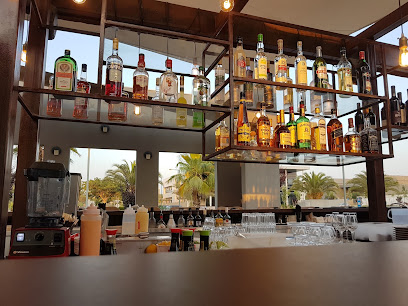
אג'נדה Agenda מסעדה בקיסריה
Experience the exquisite fusion of Italian and sushi cuisine at Agenda Restaurant in Caesarea, a culinary delight by the Mediterranean coast.
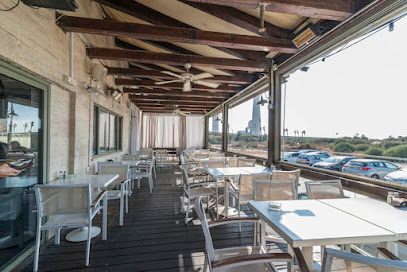
Aresto
Experience the delightful fusion of kosher and Italian cuisine at Aresto, set against the stunning backdrop of Caesarea's historic port.
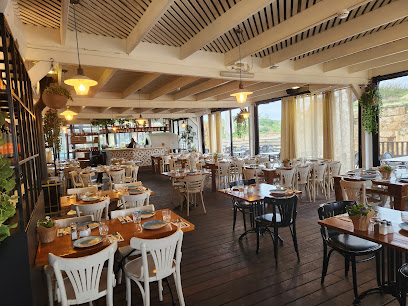
Shabtai Caesarea
Experience mouthwatering pizzas and a warm atmosphere at Shabtai Caesarea, a culinary gem in the heart of Israel's historical coastal city.
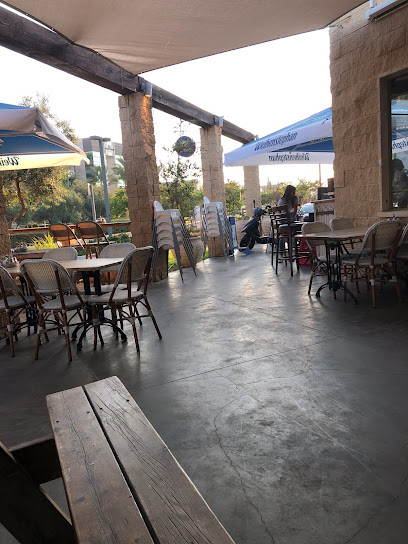
Mariposa
Experience the elegance of Mariposa in Caesarea, where fine dining meets breathtaking Mediterranean views for a truly unforgettable culinary journey.
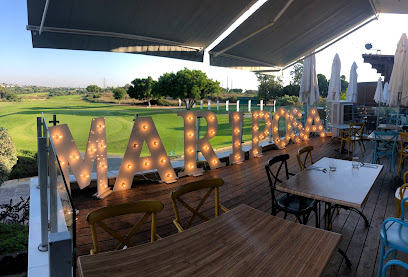
Port Cafe
Discover the culinary delights of Port Cafe, a kosher haven in Caesarea National Park offering local flavors with stunning sea views.
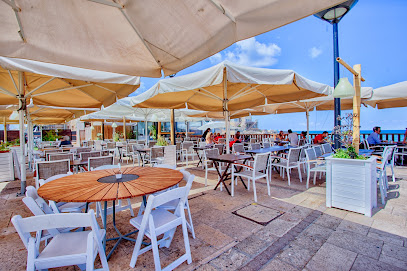
The Crusaders Restaurant
Experience the rich flavors of Israel at The Crusaders Restaurant, where exquisite kosher dining meets stunning Mediterranean views in historic Caesarea.
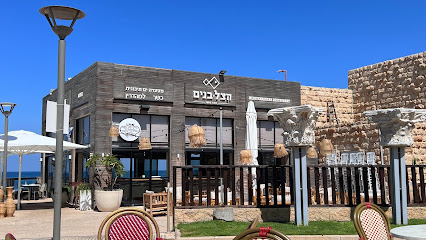
Hellena Restaurant Caesarea Harbor
Experience the exquisite Mediterranean cuisine at Hellena Restaurant in Caesarea Harbor, where every meal is a celebration of flavor and ambiance.
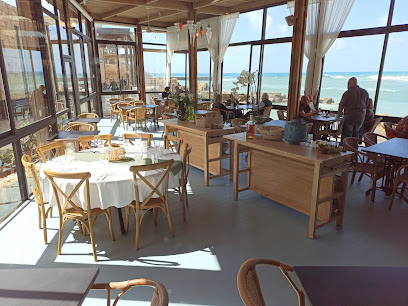
ג'מס קיסריה
Discover the vibrant flavors of Jems in Caesarea, where fresh ingredients and Mediterranean inspiration come together for an unforgettable dining experience.
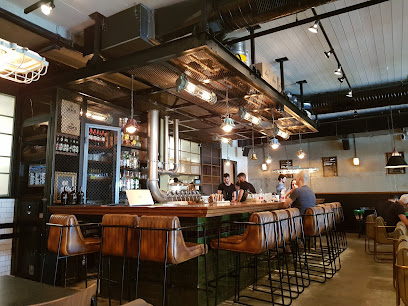
Beach Bar נמל קיסריה
Experience the vibrant atmosphere of Beach Bar נמל קיסריה, where stunning sea views meet lively entertainment in the heart of Caesarea.
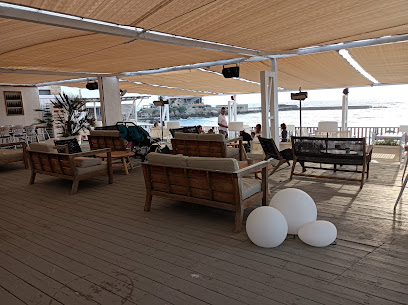
Limani Bistro
Discover the exquisite Mediterranean cuisine at Limani Bistro in Caesarea, where fresh seafood meets stunning coastal views.
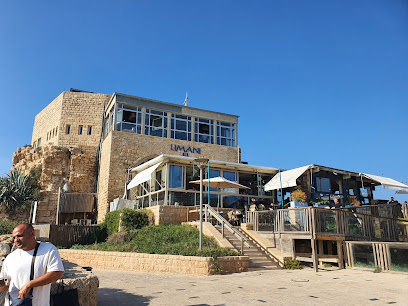
קפה בגולף - caffe bagolf
Experience the perfect blend of gourmet coffee and stunning landscapes at Caffe Bagolf in Caesarea.
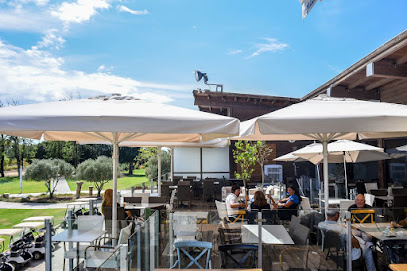
Sagi - Israeli Grill & Kitchen
Experience the authentic flavors of Israeli cuisine at Sagi - Israeli Grill & Kitchen in Caesarea, where every dish tells a story.
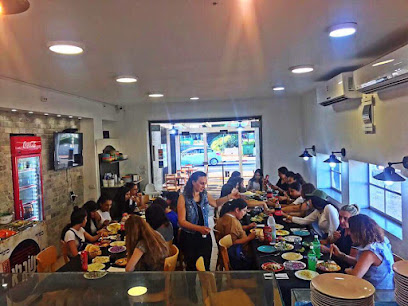
La Vita Bella
Experience the perfect blend of delicious ice cream and authentic pizza in the historic harbor of Caesarea at La Vita Bella.
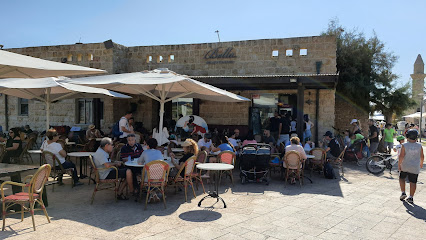
Local Phrases
-
- Helloשָׁלוֹם
[shalom] - Goodbyeלְהֵיתָר
[lehitra] - Yesכֵּן
[ken] - Noלא
[lo] - Please/You're welcomeבבקשה
[bevakasha] - Thank youתודה
[todah] - Excuse me/Sorryסליחה
[slicha] - How are you?איך אתה?
[ech ata?] - Fine. And you?טוב. ואתה?
[tov. veata?] - Do you speak English?אתה מדבר אנגלית?
[ata medaber anglit?] - I don't understandאני לא מבין
[ani lo mevin]
- Helloשָׁלוֹם
-
- I'd like to see the menu, pleaseאני רוצה לראות את התפריט, בבקשה
[ani rotse lir'ot et hataprit, bevakasha] - I don't eat meatאני לא אוכל בשר
[ani lo ochel basar] - Cheers!לחיים!
[lechayim!] - I would like to pay, pleaseאני רוצה לשלם, בבקשה
[ani rotse lishlem, bevakasha]
- I'd like to see the menu, pleaseאני רוצה לראות את התפריט, בבקשה
-
- Help!עזור!
[ezor!] - Go away!לך לך!
[lech lech!] - Call the Police!תקרא למשטרה!
[tikra lemishtara!] - Call a doctor!תקרא לרופא!
[tikra larofe!] - I'm lostאני אבוד
[ani avud] - I'm illאני חולה
[ani holeh]
- Help!עזור!
-
- I'd like to buy...אני רוצה לקנות...
[ani rotse liknot...] - I'm just lookingאני רק רואה
[ani rak roeh] - How much is it?כמה זה עולה?
[kama ze ole?] - That's too expensiveזה יקר מדי
[ze yakar midei] - Can you lower the price?אתה יכול להוריד את המחיר?
[ata yachol lehorid et hamachir?]
- I'd like to buy...אני רוצה לקנות...
-
- What time is it?כמה השעה?
[kama hasha'a?] - It's one o'clockהשעה חד
[hasha'a chad] - Half past (10)חצי אחרי (10)
[chatzi acharei (10)] - Morningבוקר
[boker] - Afternoonצהריים
[tsohorayim] - Eveningערב
[erev] - Yesterdayאתמול
[temol] - Todayהיום
[hayom] - Tomorrowמחר
[machar] - 1אחת
[achat] - 2שתיים
[shtayim] - 3שלוש
[shalosh] - 4ארבע
[arba] - 5חמש
[chamesh] - 6שש
[shesh] - 7שבע
[sheva] - 8שמונה
[shmoneh] - 9תשע
[tesha] - 10עשר
[eser]
- What time is it?כמה השעה?
-
- Where's a/the...?איפה נמצא...
[eifo nimtza...] - What's the address?מה הכתובת?
[ma hakatovet?] - Can you show me (on the map)?אתה יכול להראות לי (על המפה)?
[ata yachol leha'ot li (al hamapa)?] - When's the next (bus)?מתי האוטובוס הבא?
[matai haotobus haba?] - A ticket (to ....)כרטיס (ל...)
[kartis (le...)]
- Where's a/the...?איפה נמצא...
History of Caesarea
-
Caesarea Maritima, often simply known as Caesarea, was founded by Herod the Great in 22-10 BCE. Named in honor of Augustus Caesar, the city served as a major port and administrative center. Herod constructed an elaborate harbor, Sebastos, which showcased Roman engineering prowess and included storerooms, markets, wide roads, temples, and public buildings.
-
Under Roman rule, Caesarea became the capital of the Roman province of Judea around 6 CE. The city flourished as a hub of commerce and culture, boasting impressive structures such as the Roman theater, aqueduct, and the Herodian amphitheater. It was a melting pot of various cultures, including Jews, Romans, and Samaritans.
-
Caesarea holds a pivotal place in Christian history. It is where the Apostle Peter baptized Cornelius the Centurion, marking the first recorded instance of a Gentile converting to Christianity, as detailed in the Acts of the Apostles. Additionally, the city was home to the early Christian theologian Origen and later became a significant center for Christian scholarship.
-
During the Byzantine period (4th-7th centuries CE), Caesarea continued to thrive. It became an important center of Christian learning and saw the construction of new churches and a cathedral. The city's prominence is evidenced by its mention in the Madaba Map, a 6th-century mosaic map of the Holy Land.
-
In 640 CE, Caesarea was conquered by Muslim forces, marking the city's gradual decline. Although it remained a significant town, the construction of new Islamic cities like Ramla shifted the region's focus. The Crusades temporarily revitalized Caesarea, but it was eventually abandoned following the Mamluk conquest in 1265 CE.
-
Under Ottoman rule from the 16th to early 20th centuries, Caesarea was a small, relatively insignificant village. The modern era brought renewed interest in the city's rich history. Excavations, beginning in the 1950s, have uncovered a wealth of archaeological treasures, including the Herodian harbor, Roman aqueduct, and the Crusader city.
Caesarea Essentials
-
Caesarea is located along the Mediterranean coast of Israel, approximately halfway between Tel Aviv and Haifa. The nearest international airport is Ben Gurion Airport in Tel Aviv, about 60 kilometers away. From the airport, you can rent a car, take a taxi, or use public transportation to reach Caesarea. Trains run from Tel Aviv to Binyamina station, which is about 10 kilometers from Caesarea. From Binyamina, you can take a taxi or a local bus to reach your final destination.
-
While Caesarea is a fairly small town, having a car can be convenient for exploring its scattered historical sites and surrounding areas. Local buses and taxis are available for getting around, but they may not operate frequently. Bicycle rentals are also an option for those who prefer a more active way to explore the town. The town's layout is pedestrian-friendly, making walking a viable option for visiting nearby attractions.
-
The official currency in Israel is the Israeli New Shekel (ILS). Credit cards are widely accepted in Caesarea, including in hotels, restaurants, and shops. ATMs are readily available, and many establishments also accept mobile payments. It is still advisable to carry some cash, especially when visiting smaller shops or markets.
-
Caesarea is generally considered a safe destination for tourists. However, it is always wise to take standard precautions. Avoid walking alone at night in poorly lit areas and keep an eye on your belongings in crowded places. There are no specific high-crime areas in Caesarea that target tourists, but staying vigilant and aware of your surroundings is always a good practice.
-
In case of an emergency, dial 100 for police, 101 for medical emergencies, and 102 for fire services. Caesarea has a local police station, and medical facilities are available in nearby towns like Hadera and Netanya. It is highly recommended to have travel insurance that covers medical emergencies. Pharmacies are available in the town for minor health issues and over-the-counter medications.
-
Fashion: Do dress comfortably and modestly, especially when visiting religious sites. Avoid overly revealing clothing. Religion: Do respect local customs. When visiting religious sites, dress modestly and be respectful. Public Transport: Do be courteous to fellow passengers. Avoid eating or drinking on public transport. Greetings: Do greet people with a handshake or a friendly nod. Using basic Hebrew phrases like 'Shalom' (Hello) can be appreciated. Eating & Drinking: Do try local dishes and accept hospitality graciously. Don't refuse food or drink offers, as it may be considered impolite.
-
To experience Caesarea like a local, visit the local markets and try fresh produce and traditional foods. Interact with the residents; they are often friendly and willing to share insights about the town's rich history. Don't miss the ancient Roman aqueduct and the Caesarea National Park, which offers a glimpse into the town's historical importance. For a unique experience, attend a concert or event at the Caesarea Amphitheatre, a historic venue with stunning views of the Mediterranean.
Trending Landmark in Caesarea
Nearby Cities to Caesarea
-
Things To Do in Zikhron Ya'akov
-
Things To Do in Hadera
-
Things To Do in Netanya
-
Things To Do in Haifa
-
Things To Do in Ra'anana
-
Things To Do in Raanana
-
Things To Do in Kfar Saba
-
Things To Do in Herzliya
-
Things To Do in Hod Hasharon
-
Things To Do in Nazareth
-
Things To Do in Tel Aviv
-
Things To Do in Akko
-
Things To Do in Acre
-
Things To Do in Ramat Gan
-
Things To Do in Jaffa












